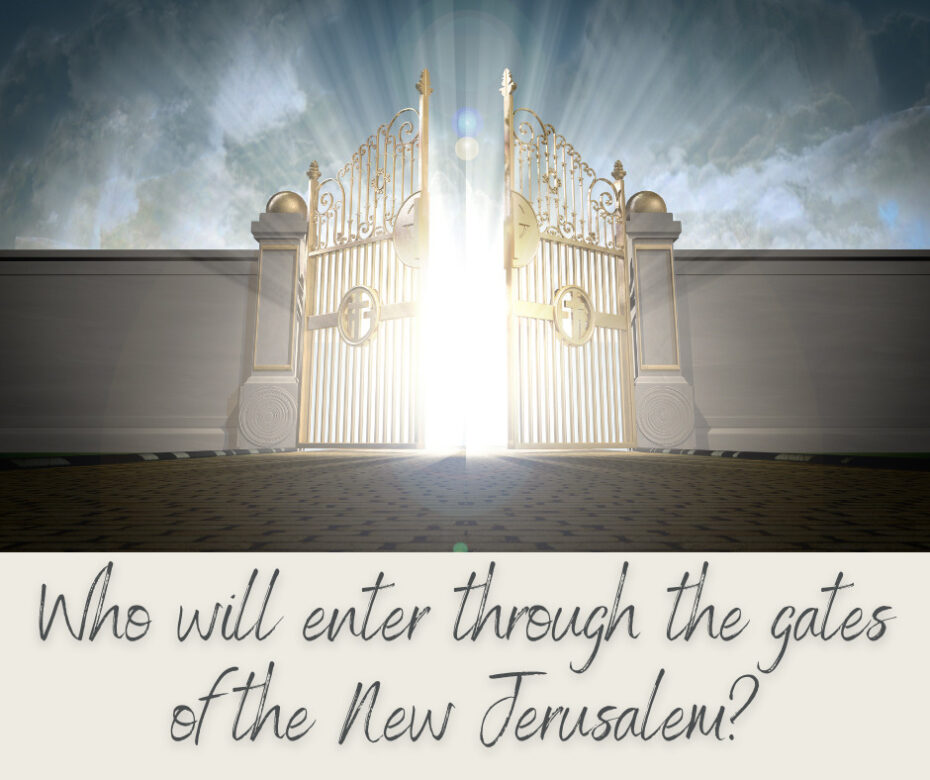In Rev 21:9-21, John describes the New Jerusalem. It will be the dwelling place of believers in the eternal kingdom. Jesus refers to it when He tells the disciples that He will go prepare a place for them (John 14:3). It will be a huge city, and John tells us that there will be twelve gates in its walls. The gates will be large pearls. This is the origin of the phrase “pearly gates” that people sometimes use in reference to eternity.
This vision of the New Jerusalem had an immense impact on John. He says that people from all over the kingdom will come to the city, bringing the “honor and glory” of the nations into it (v 27).
The picture, then, is one in which everybody in the Lord’s kingdom will enter into the New Jerusalem. We might call it the capital of the Lord’s kingdom. It will be a place of surpassing beauty and abundant activity.
As John concludes the Book of Revelation, however, he adds a new wrinkle regarding the gates of this city. He says that those who are able to enter through those gates will be those who obey the commandments of the Lord. The privilege of using them is contingent upon obedience. It will be a reward.
There seems to be a contradiction. John says that all the nations will enter the city, but then says that only those who obey the Lord will do so through the gates. Some will say that all believers obey the Lord and therefore all believers will come into the city through the gates. This view denies that there will be rewards in the coming kingdom because it sees all believers as being faithful.
The NT, however, is clear that not all believers are obedient. Not all believers will be rewarded equally. It is best to see Rev 22:14 as describing a reward given to some believers.
But what does it mean? It seems that this incredible city will have numerous ways by which to enter it. There will be twelve gates, however, that will be reserved for faithful believers. It will be an honor to use them.
When I was in the military, certain buildings had specially designated doors. They often had the words “Commander’s Entrance” above them. This meant that only the boss and certain staff members could use that door. These doors would allow the person using them to avoid areas of heavy traffic and get to his office much more quickly. Others would have to walk around the building to enter it. Using that door was a privilege given to those who were in authority. Sometimes, these doors led to a conference room. In this room, the commander and staff would periodically meet to plan what the unit was going to do.
In the OT, business was conducted at the gates of a city. The elders would convene there to make important decisions. The gates were places of authority.
John is describing that kind of situation. These pearly gates will be the way rewarded believers of all eternity will enter this marvelous city. It will be one of the many ways the Lord will confess the faithfulness of such believers.
My guess is that these gates will also be places where those who will rule with Christ will discuss and plan things that the Lord wants them to do. His kingdom will be always expanding. There will be many things that need to be done and decisions to be made. The King will give authority to make those decisions. Often, these decisions will involve discussions that take place at the pearly gates of the New Jerusalem.
What will that look like? There are a lot of questions. John’s description of the city and its gates gives us only a glimpse of what it will be like. We know, however, that it will be a tremendous privilege for those who are counted worthy.


